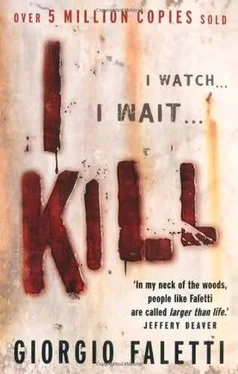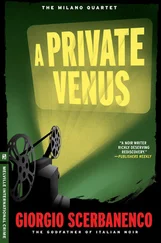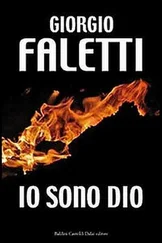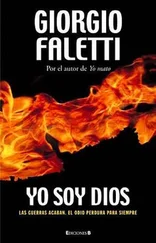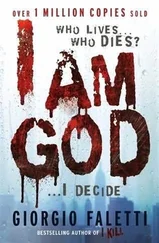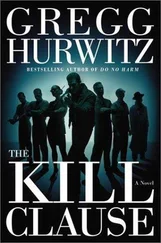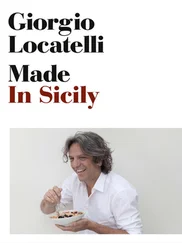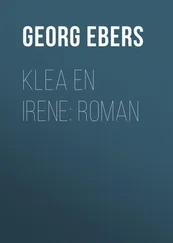‘Anyone who knows electronics and telephones wouldn’t have any problem. Any reasonably competent hacker could do it through the Internet.’
‘Can we find out whether the call came from a land line or a mobile phone?’ Hulot felt like a prisoner with walls everywhere he looked.
‘No, but I’d exclude a mobile. If he used the Web, mobiles are much slower and don’t work as accurately. The person who did all that is too knowledgeable not to be aware of it.’
‘Any more tests you can do on the recording?’
‘Not with the equipment I have. I’m going to send a copy of the DAT to the science lab in Lyons to see if they can get anything out of it.’
‘Good. Top priority,’ Hulot said, resting his hand on Clavert’s shoulder. ‘If Lyons complains, we’ll pressure them.’
Clavert considered the subject closed. He unwrapped a stick of gum and put it in his mouth. There was a moment of silence. The four of them, each in his own way, thought through what had been said. Froben spoke first.
‘Come on, let me get you some coffee.’
He led them up the stairs and turned left at the landing. There was a coffee machine in the corner. Froben took out his card.
‘Coffee, everyone?’ The other two nodded. The inspector inserted his card, pressed a button, and the machine started to hum.
‘What do you think, Frank?’ Hulot asked the American, who was silently watching the small plastic cup fill with black liquid.
‘We don’t have much,’ Frank said, deciding to voice his thoughts, ‘and any direction we take will lead nowhere. I told you, Nicolas, our man is smart, very smart. There are too many coincidences to think that he simply got lucky. For now, our only connection to this bastard is that phone call. If we’re lucky enough, and if he’s enough of a narcissist, he’ll make others. And if we’re very lucky, he’ll make them to the same person. And if we’re even luckier, he’ll make a mistake. It’s our only hope if we want to catch him and stop him before he kills again.’ He swallowed a mouthful of his coffee and grimaced. ‘I think it’s time to have a serious talk with Jean-Loup Verdier and the people at Radio Monte Carlo. I’m sorry to say this, but for the moment we’re in their hands.’ He drained his cup and threw it into the bin.
They headed towards the exit.
‘I imagine there is already a certain amount of… agitation… in the Principality,’ Froben said to Hulot.
‘Calling it “agitation” is like calling Mike Tyson “uptight”. Things are at the point of collapse. Monte Carlo is a picture-postcard city, you know that. Image is everything. We spend tons of money to guarantee two things: elegance and safety. And then you get this nut who has elegantly kicked us in the balls. If this doesn’t end soon, heads are going to roll.’ Hulot paused and sighed. ‘Including mine.’
They reached the front door and said goodbye. Froben stood there watching them as they strolled back to their car. His prizefighter’s face showed solidarity, but also relief that he wasn’t in their place.
Once they were inside the car, the inspector turned to look at Frank. It was almost dinnertime, and he realized he was hungry.
‘Café de Turin?’ he asked him.
The Café de Turin was a bare-bones place, just benches and rickety tables in Place Garibaldi. They served excellent coquillage, with bottles of chilled Muscadet. He’d taken Frank and his wife there when they had come to Europe, and the two of them had been in raptures over the huge counter piled with shellfish and the gloved staff busy opening them. They had watched with shining eyes as the waiters passed with huge trays of oysters and Venus clams and gigantic red shrimp. The tiny restaurant had become their culinary sanctum sanctorum. Hulot had hesitated at mentioning the place, afraid that the memory would upset Frank. But he seemed changed, or he was at least trying. If he wanted to pull his head up out of the sand, that was the way to do it. Frank nodded, agreeing with both the choice and Hulot’s good intentions. Whatever he was thinking, it did not show on his face.
‘Café de Turin it is.’
‘You know,’ Hulot said later, relaxing after the food, ‘I’m tired of acting like a TV character. I feel like a caricature of Lieutenant Columbo. I need half an hour off. If I don’t unwind a little, I’ll go crazy.’
It was evening and the city lights had come on. Frank looked out the window at the people milling around, going in and out of houses, restaurants and offices. Thousands of people with anonymous faces. The two men both knew that Hulot was lying. There was a killer in the midst of all these gentle summer people and until it was over, neither of them would be able to think about anything else.
Behind the control room window, Laurent Bedon, the director, did the countdown, turning down the fingers of his raised hand one by one. Then he pointed at Jean-Loup Verdier. The red light behind him lit up. They were on the air. The deejay pulled his chair a little closer to the microphone on the table in front of him.
‘Hello to all of you listening right now and to all of you who will be hearing our voices this evening. There’ll be music and people sharing their lives with us, lives that don’t always beat to the rhythm of the music we’d like to hear.’
He stopped and pulled back slightly. The mixer broadcast the fierce intro of ‘Born to Be Wild’ by Steppenwolf. A few seconds later, there was a fade-in to Jean-Loup’s warm, inviting voice.
‘We’re here and we’re ready, if there’s anything we can do to help. For those who put their hearts into something and got a heartless answer, for those who made mistakes and bad choices, for those who won’t find any peace until they figure out where the spice of life is hidden, for those who risk drowning in a flood of their own tears, we’re here for you and we’re live, just like you. We’re waiting to hear your voice. You can expect our answer. This is Jean-Loup Verdier on Radio Monte Carlo. This is Voices. ’
Again, ‘Born to Be Wild’. Once more, the race of discordant guitars down a rocky slope, raising dust and scattering gravel. ‘Wow, he’s good!’ Frank Ottobre, next to Laurent in the control room, could not keep from saying. The director turned to look at him with a smile.
‘Sure is.’
‘I’m not surprised he’s such a success. He’s got a very direct and heartfelt style.’
Barbara, the show’s mixer, sitting on Frank’s right, motioned to him to look behind him. He turned his chair and saw Hulot beckoning at him through the soundproof glass door. He got up and joined Hulot outside the studio.
The inspector looked exhausted, as if he hadn’t slept for a week. Frank noticed the dark circles under his eyes, the grey hair in need of a trim, and the ring of grime and desolation around his collar. This was a man who had been seeing and hearing things that he gladly would have lived without. He was fifty-five and looked ten years older.
‘How’s it going here, Frank?’
‘Nothing happening. The programme’s a hit. He’s fantastic – a natural. I don’t know how much they pay him, but it’s got to be a lot. But as far as we’re concerned, nothing. Absolute silence.’
‘Want a Coke?’
‘Come on, I know I’m American, but my grandparents were Sicilian. I drink coffee.’
They went over to the machine at the end of the hall. Hulot rummaged for some coins in his pocket.
‘The manager was really impressed by the fact that I’m with the FBI,’ Frank said with a broad smile, pulling out a card. ‘Coffee’s on the house.’
‘Oh, I forgot,’ said the inspector, gulping the black liquid. ‘The handwriting analysis arrived.’
Читать дальше
